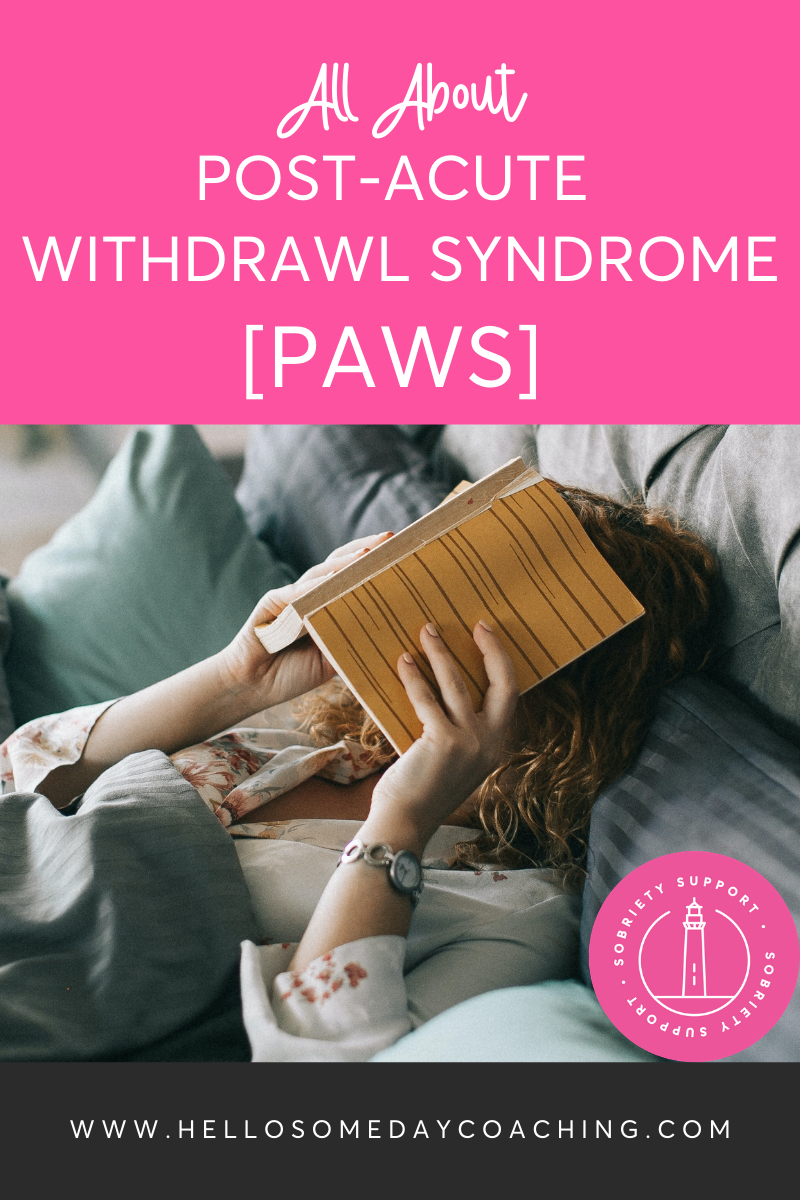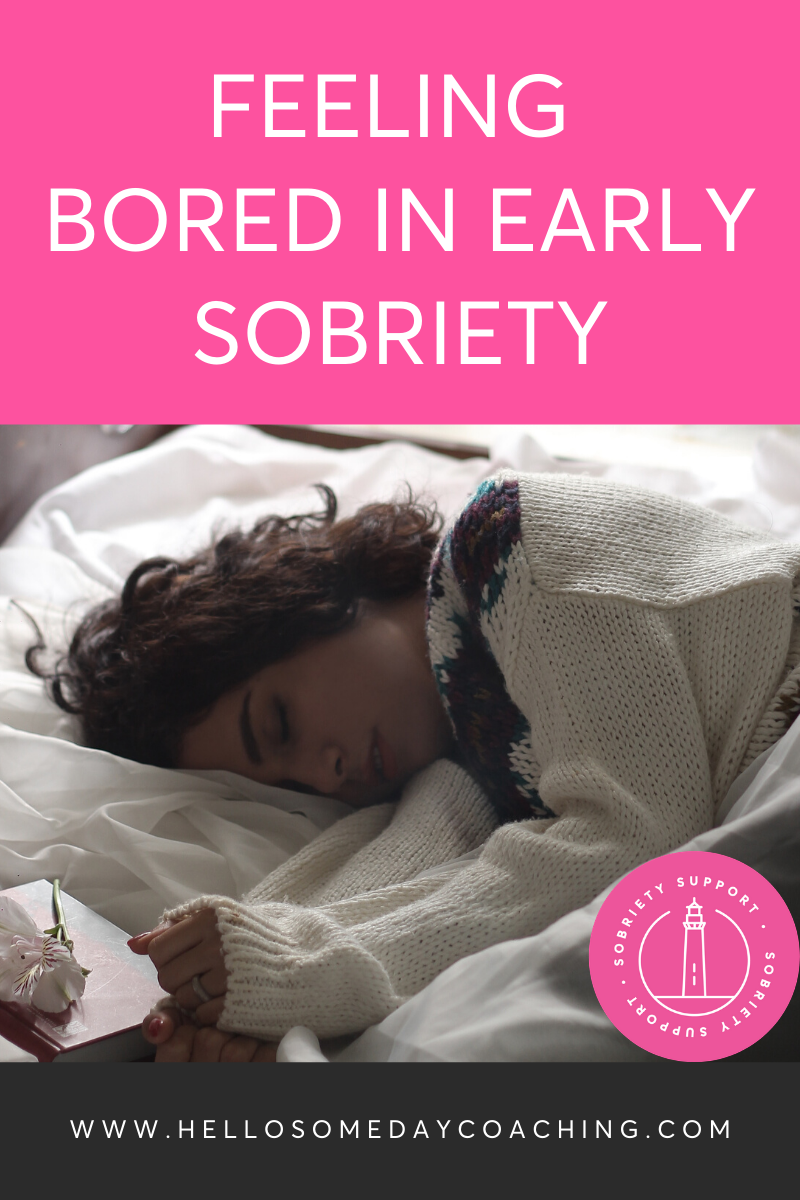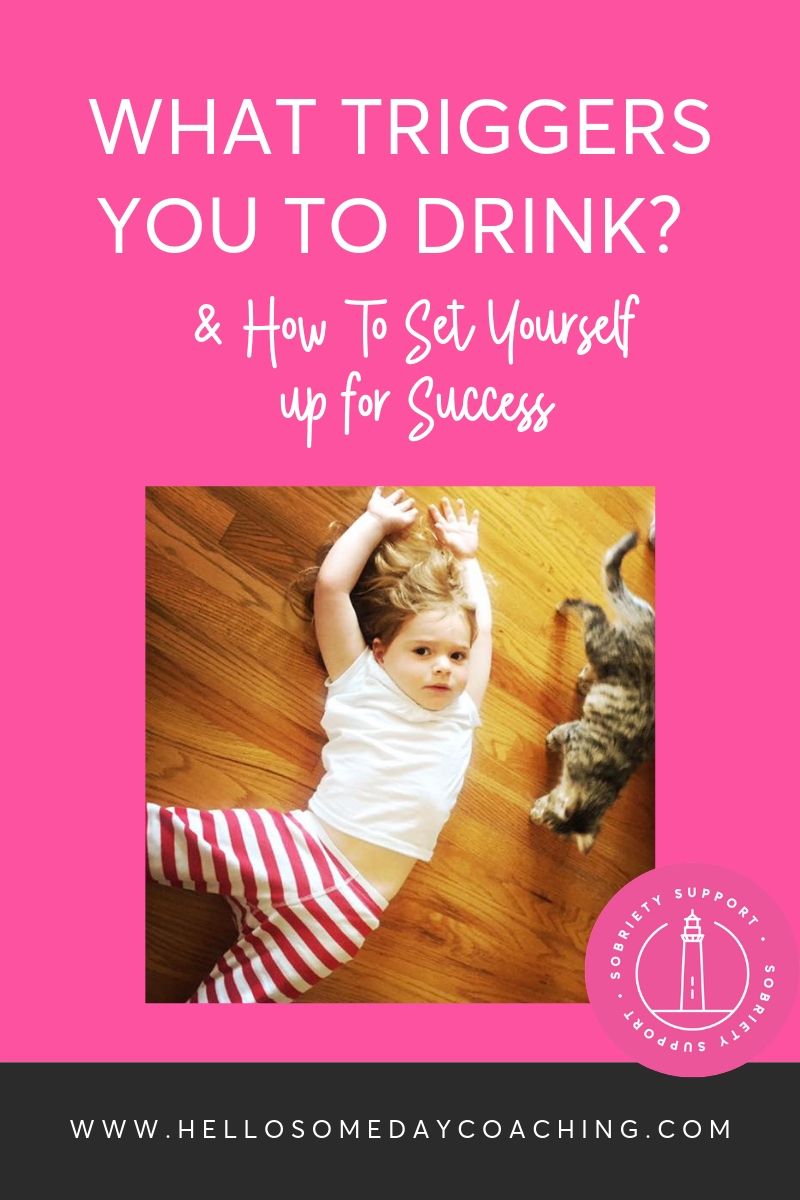
What is Post-Acute Withdrawal Syndrome (PAWS)?
HERE’S wHAT YOU NEED TO KNOW ABOUT PAWS AND HOW TO COPE WITH IT WITHOUT GOING BACK TO DRINKING.
Sometime after quitting drinking you might suddenly feel like you’re back in early sobriety or feel the way you did when you were drinking and recovering from hangovers.
When you start to feel this way it’s important (and so helpful) to recognize that what you’re feeling is part of recovering from drinking and it will pass.
It’s called Post-Acute Withdrawal Syndrome (PAWS). It comes up at different times when you’re not drinking – and it’s surprising and disappointing and it feels like it makes no sense at all.
Here’s what sucks about PAWS: you haven’t been drinking, you’ve been doing all the right things, you are finally feeling better, and then suddenly you feel lethargic and sad and stressed again – and you can’t figure out why.
The pink cloud has disappeared. Suddenly the feeling of health and energy and optimism is gone.
PAWS sucks and it can trip up a lot of women and lead them to going back to drinking.
So if you start feeling this, it helps to know why you feel this way, know it will pass and know what to do.
When PAWS hits you likely don’t realize that this is happening TO you. Instead you think “Ughhh. I feel awful. This sucks. I don’t want to feel this way anymore. I stopped drinking and I STILL feel like I don’t have any energy. I feel really low. I feel like I have no joy. If this is what ‘not drinking’ feels like – It’s not worth it. At least when I was drinking I got to numb out and get that buzz.”
Here’s the thing, this isn’t what “not drinking” feels like. This is what PAWS feels like.
When you move through it, you get to feel better again.
Post-acute withdrawal syndrome symptoms can feel like they’re happening “waves”. It might seem like an emotional roller coaster of ups and down, and it helps to know what you can do to feel better if they happen to you.
Symptoms of PAWS (Post-Acute Withdrawal Syndrome)
Click here to link to the original source of this information.
Women who stop drinking say PAWS symptoms (or the feelings described below) can show up a few months after they stop drinking – often at 60 days or 80 days.
Unstable and Unpredictable Moods
- One of the most common symptoms reported by people suffering from PAWS are mood swings or unpredictable changes in their mood.
- You might have sudden feelings of overwhelming depression without any reason or anxiety or agitation.
The feeling of not being able to feel pleasure
- You might lose interest in things that you previously enjoyed doing, sometimes described as having your ability to feel pleasure turned off.
Feelings of Numbness
- You might go through a stage of not feeling any emotions at all. Some describe it as being empty or numb inside.
Inability to Concentrate or Think Clearly
- You might feel like you somehow don’t have the ability to solve simple problems due to their inability to think clearly. Maybe you feel like you have difficulty concentrating, or you’re finding it’s hard to think about anything but the fact that they are not drinking.
Sleep Issues
- Probably the PAWS symptoms most responsible for relapses are those related to sleep disturbances. You might find it difficult to fall asleep, but also wake up and sleep poorly. You might even have “drinking dreams”.
Strong Cravings
- Yeah – you feel like crap and start wanting to drink again to make the feelings go away.
Feeling More Stress
- During PAWS you might feel stress again or feel overwhelmed in situations that ‘shouldn’t be that stressful.

Tips for Feeling Better When PAWS Symptoms Hit
- Identify your sources of stress and try to minimize them. It’s a good time to go back to the self-care basics from early sobriety. Take things off your list, ask for help, ask your boss to prioritize tasks and deadlines, rest, lower the bar, say no to new project and responsibilities.
- Sober treats! Do what you can to pull yourself out of the funk (or at least make today tolerable). Give yourself some comfort and joy in the moment.
- Eat well. A lot of times we’re hungry. Eat protein, eat before you get starving, and sweets help in sobriety – small treats – but don’t eat total crap because that will make you feel worse.
- Habits help. When you have a schedule you don’t have to “overthink” how you’re feeling or what you’re doing. Include some things you like and some things to do.
For example, make a habit of reading a book for 30 minutes a day. Take a walk for coffee at 2pm. Call a friend on your drive home. Habits help.
More Tips for Managing PAWS Symptoms
- Do what you can to keep your mindset positive. Try a gratitude practice. Write down 3 things you’re grateful for each day and put it in a jar. The act of noticing anything – a flower, fresh coffee, a nice hug, your pet and how cute he is…it helps reframe your mind to positivity.
- Do things that will help you relax and decompress. Do a sleep meditation before bed (the free Insight Timer is great). Try EFT tapping, relaxing yoga or breathing to center yourself.
- And just hold on. This will pass. It is normal. It will get better. And have compassion for yourself.
And If you’d like to talk to someone who gets it, please reach out to me.
Sources and references for information about PAWS used for this blog post can be found here, here and here.
And below are two more blog posts that can help you get through the tough times in early sobriety.
It is worth it. You will feel better. I promise.

About The Author
I’m Casey McGuire Davidson, a certified life coach who works with successful women who are ready to get out of overwhelm and create lives they love.
I also work with women who are reevaluating their relationship with alcohol and have decided that drinking isn’t working in their lives anymore.
You can find more about my work and private coaching, as well as additional support resources at hellosomedaycoaching.com.


